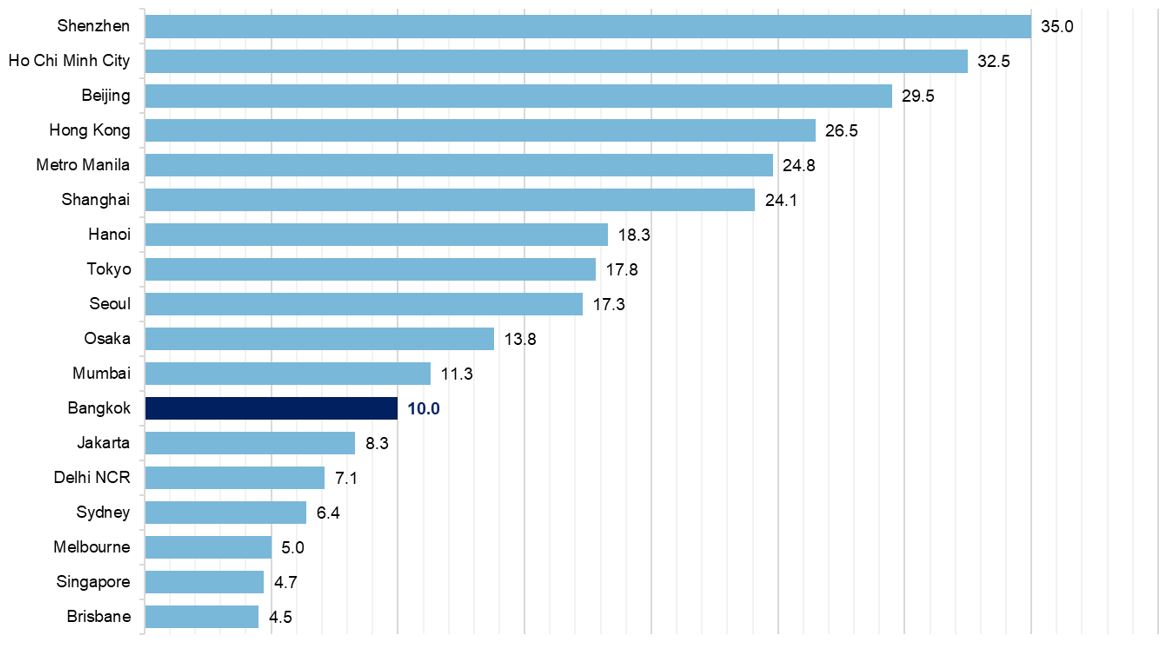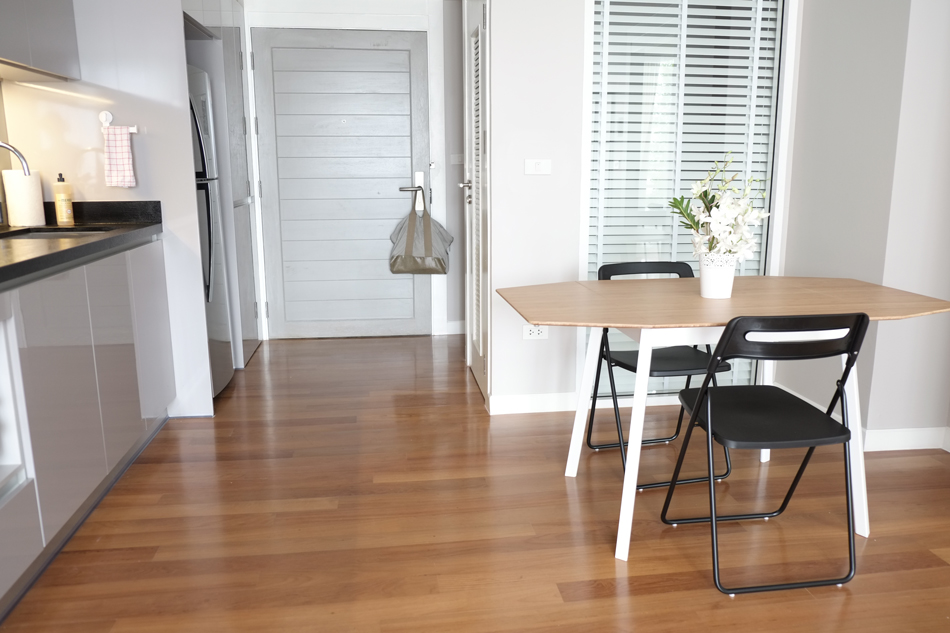How rising interest rates are impacting Bangkok’s residential market
The rising interest rates in Bangkok have led to a decrease in affordability for housing, causing challenges for local buyers. The sales performance of the housing market has been affected, with a decrease in pre-sales rates.
Key Takeaways
- Rising interest rates and housing affordability challenges are impacting Bangkok’s residential market, leading to a decrease in pre-sales rates and mortgage rejections for units priced under THB 5 million.
- The rental market in Bangkok’s Central Business Area is strengthening, driven by spillovers from cautious buyers and the return of expatriates, indicating a potential shift towards rental properties as a short-term option for first-time buyers.
- The rental housing market in Bangkok is set to evolve, with factors such as changing buyer behavior, a growing urban population, the expatriate community, and worsening housing affordability creating investment opportunities and driving demand for rental properties.
The increase in borrowing costs and inflation has adversely affected the purchasing power of consumers. The local buyers are concerned about the affordability of housing as the housing prices have surpassed the household income. Due to this, many buyers have faced difficulties and have been unable to find suitable options within their budget, leading them to drop out of the housing market entirely.
APAC Housing Affordability

Note: Median/Average Apartment Price to Median Annual Household Income
As economic headwinds loom, the affordability problem affected the sales performance of low-to-high market segments, where most buyers rely heavily on a mortgage. This has resulted in a decrease in the pre-sales rate up to -12%.
Even though we saw an increase in pre-sale rates in the mid-low segment in 2Q23, the mortgage rejection rose in parallel to a concerning rate estimated at 50-60% for units priced under THB 5 million. Meanwhile, demand from foreign buyers – mainly driven by Chinese investors – is still gloomy but climbing back to the pre-pandemic level.
Despite these challenges, activities in the rental market strengthened as investment-grade apartments in Bangkok’s Central Business Area (CBA) recorded a 2.5% q-o-q increase in 3Q23, driven by spillovers from buyers adopting a wait-and-see approach and the return of expatriates.
This also suggested that rental properties could potentially be the short-term option for first-time buyers, who either cannot access a mortgage or are more inclined to rent.The question is, whether this will trend turn into a longer-term phenomenon?
From the perspective of developers and investors, it is anticipated that several key factors will play a vital role in driving the rental housing market and subsequently provide investment opportunities to capture this growing pool of demand. These factors include: a paradigm shift in behaviour and mobility of Gen-Z and Gen Alpha buyers, structural tailwinds of a growing urban population, growth of expatriate community, and most importantly, an exacerbating housing affordability.
In many markets across APAC, the living sector has proven to be one of the most active and sought-after asset classes. In 1H23, JLL recorded a substantial allocation of capital into the multifamily sector against a 24% decline in total APAC investment volume. While the multifamily market is becoming more established in first-tier cities like Japan, PRC and Australia, Bangkok’s rental housing market – where perpetual ownership has always been the norm – is still in its infancy and set to evolve.
Non-serviced apartment stock in Bangkok CBA stood at approximately 10,900 units in 2Q23 – roughly 55% built before 1997. Only 16.8% or 1,832 units are classified…


